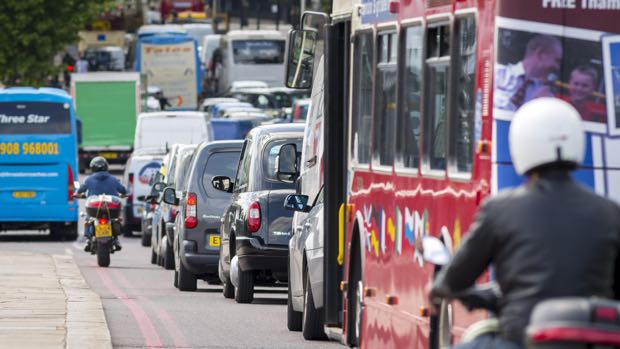Only a massive shake-up in public transport will relieve M4 congestion around Newport, is the preliminary finding of the South East Wales Transport Commission, but it also hints at road charging congestion tolls to deter peak time users.
The report’s findings follow detailed analysis work and stakeholder engagement after it was set up by Welsh Government when First Minister Mark Drakeford rejected a new M4 link to the south of the city.
This week, Welsh Government agreed to write-off a bill of over £40M for consultancy work into the study for the aborted road.
Now, the South East Wales Transport Commission, which said its work has been interrupted by the Covid-19 epidemic, hopes to make its final recommendations by the end of this year.
The interim report just released has been summarised by Lord Burns, Chair of the South East Wales Transport Commission, who said, “We have found that congestion on the M4 is largely a peak-hours problem, predominantly associated with commuting. People have few credible public transport alternatives for the types of journeys they need to make.
“Overall, our view is that the region needs an integrated network of alternative transport options that do not depend on the motorway. Our focus is now on deciding the transport services that should form part of this transport network, in particular new rail stations, reliable bus services and new cycling routes.”
A relatively small increase in traffic leads to a disproportionate increase in congestion. It is not a resilient motorway and the problems spill over onto the Newport road network, especially during incidents.

“The M4 is largely used for regional, medium-distance travel, with many trips starting or ending in the cities of Cardiff, Newport and Bristol. Most journeys are over medium or long distances; there are relatively few short-distance journeys on the motorway.
“Many people do not have good transport alternatives to the motorway. The combination of the rail, bus and active travel networks do not accommodate the range of the journeys that people are undertaking, particularly commutes.”
The Commission said that all of the rail, bus and active travel networks are offering insufficient services. The individual modes are also poorly integrated, in relation to interchange, timetables and ticketing. This limits the value of each part. There is insufficient regional coordination.
Land use decisions with respect to homes, offices and retail parks have contributed to congestion and, on the current trajectory, this looks set to continue. At the same time, the population of the region’s cities is projected to rise considerably. Without action, this will place additional pressure on the motorway.
“If we are to alleviate congestion, we need to create attractive and viable alternatives for people. Until these exist, it is very difficult to solve the problem sustainably.
“Of course, the COVID-19 epidemic has radically changed the situation – the question is for how long. Traffic is at a much lower level and we expect congestion to be less problematic while social distancing is in place.
“In the long term, a substantive and sustained increase in remote working could have a meaningful impact on reducing traffic. However, our view remains that in order to function efficiently, the region requires additional, non-car transport options.”
Overall, a key emerging recommendation is a ‘Network of Alternatives’ for South East Wales. A network approach puts a focus on integration, allowing for flexible journeys, reflecting the diversity of types of trips that people want to make. When the different parts work together, its value can be greater than the sum of its parts.
“Our final report will make specific recommendations to the Welsh Government. These will cover all modes of transport, as well as wider policy on land use, governance and charging.”
There was immediate reaction by Welsh Conservatives to the report and Russell George MS – the Welsh Conservatives spokesperson on Transport – said, “The report’s findings make interesting reading, particularly the effect of the pandemic on individuals’ travelling habits.
“While there is a case for looking at, as recommended, looking more flexible working arrangements for people, Welsh Conservatives regard a successful travel policy – be it for work, education, or pleasure – as a mix of public and private transport.
“We are also strong advocates for an M4 relief, something commuters, businesses, and businesspeople have needed for years, and have pledged that a Welsh Conservative government would deliver this.
“However, the question over introducing ‘congestion charges’ – less than two years after tolls, effectively a tax for entering Wales, were removed from the Severn Crossings – requires much more.
“The axing of the tolls has saved the average commuter or business £1,400 per year, and provided an estimated annual boost of over £100 million for the Welsh economy. Businesses have also benefited from strengthened links between communities ranging from West Wales to South-west of England by making it easier for consumers, business, and employees to cross the border.
“Some businesses may prefer to pay for a faster and less congested route, but until realistic alternatives are in place, charging people to use the M4 is not something Welsh Conservatives would support.”


